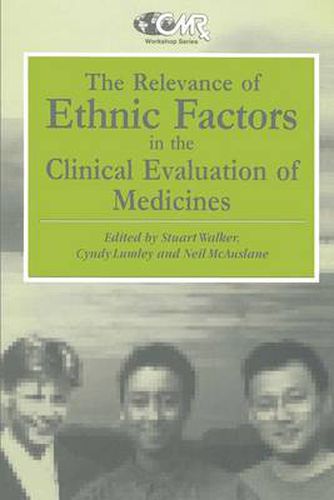Readings Newsletter
Become a Readings Member to make your shopping experience even easier.
Sign in or sign up for free!
You’re not far away from qualifying for FREE standard shipping within Australia
You’ve qualified for FREE standard shipping within Australia
The cart is loading…






This title is printed to order. This book may have been self-published. If so, we cannot guarantee the quality of the content. In the main most books will have gone through the editing process however some may not. We therefore suggest that you be aware of this before ordering this book. If in doubt check either the author or publisher’s details as we are unable to accept any returns unless they are faulty. Please contact us if you have any questions.
For a research-based pharmaceutical company to be successful in the 1990s. it must have a strategic plan for the global development of new chemical entities. Global development can be defined as an attempt to reach all major markets as rapidly as possible and for many companies these will include the United States. Japan. Germany. France. Italy. UK and Canada. which together represent approximately 85% of the pharmaceutical market in the developed world. The mutual acceptance of foreign clinical data would reduce the time and resources required to develop a new medicine for the international market by eliminating the requirement for the routine repetition of clinical studies in local populations. In Japan this has been largely based on the belief that genetic differences in respon siveness may result in a different benefit/risk assessment for a new mediCine. while requests in Europe and the United States for local data relate mainly to methodological and cultural considerations. The importance of this issue has been recognised internationally as it was one of the topics discussed at the International Conference on Harmonisation in Orlando (October 1993) and it is currently on the programme for ICH3 which will be convened in Yokohama in Japan in November 1995.
$9.00 standard shipping within Australia
FREE standard shipping within Australia for orders over $100.00
Express & International shipping calculated at checkout
This title is printed to order. This book may have been self-published. If so, we cannot guarantee the quality of the content. In the main most books will have gone through the editing process however some may not. We therefore suggest that you be aware of this before ordering this book. If in doubt check either the author or publisher’s details as we are unable to accept any returns unless they are faulty. Please contact us if you have any questions.
For a research-based pharmaceutical company to be successful in the 1990s. it must have a strategic plan for the global development of new chemical entities. Global development can be defined as an attempt to reach all major markets as rapidly as possible and for many companies these will include the United States. Japan. Germany. France. Italy. UK and Canada. which together represent approximately 85% of the pharmaceutical market in the developed world. The mutual acceptance of foreign clinical data would reduce the time and resources required to develop a new medicine for the international market by eliminating the requirement for the routine repetition of clinical studies in local populations. In Japan this has been largely based on the belief that genetic differences in respon siveness may result in a different benefit/risk assessment for a new mediCine. while requests in Europe and the United States for local data relate mainly to methodological and cultural considerations. The importance of this issue has been recognised internationally as it was one of the topics discussed at the International Conference on Harmonisation in Orlando (October 1993) and it is currently on the programme for ICH3 which will be convened in Yokohama in Japan in November 1995.